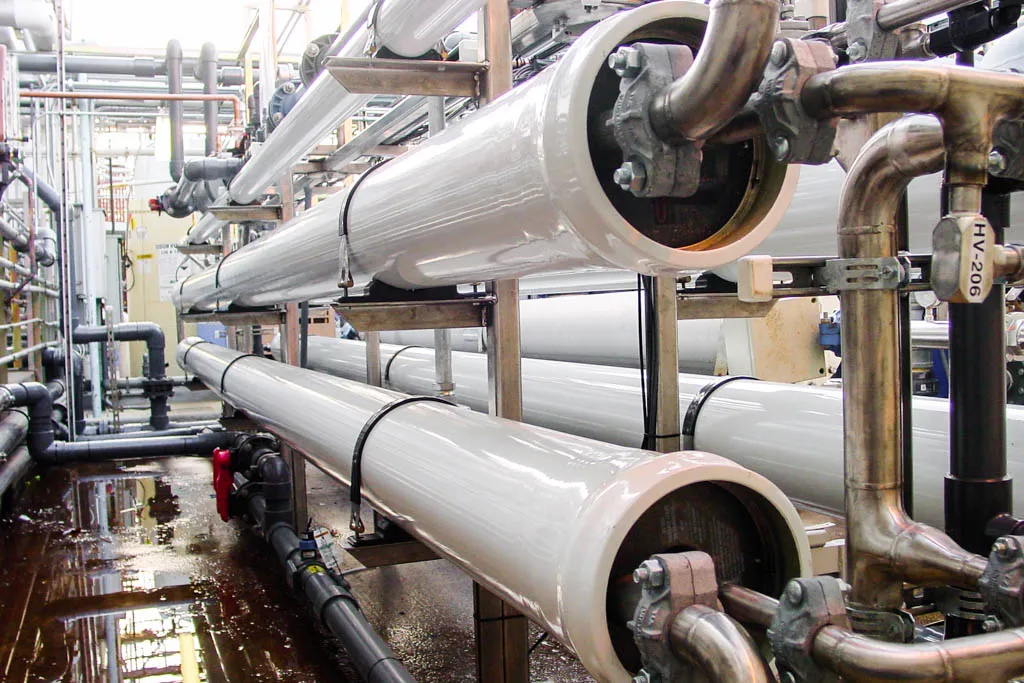Reverse Osmosis (RO)
A Reverse Osmosis (RO) Plant is a water purification system that uses a semi-permeable membrane to remove dissolved salts, impurities, and contaminants from water by applying pressure. This process effectively produces clean, potable water by filtering out bacteria, viruses, heavy metals, and other dissolved solids. RO plants are widely used for drinking water treatment, industrial processes, and desalination, helping to provide safe and high-quality water while reducing reliance on traditional water sources. They are essential for areas with poor water quality or scarcity, supporting sustainable water management.

